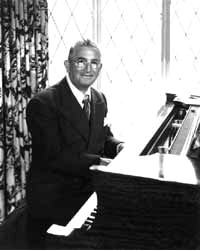Archives
- 01/01/2004 - 02/01/2004
- 02/01/2004 - 03/01/2004
- 03/01/2004 - 04/01/2004
- 04/01/2004 - 05/01/2004
- 05/01/2004 - 06/01/2004
- 06/01/2004 - 07/01/2004
- 07/01/2004 - 08/01/2004
- 08/01/2004 - 09/01/2004
- 09/01/2004 - 10/01/2004
- 10/01/2004 - 11/01/2004
- 11/01/2004 - 12/01/2004
- 12/01/2004 - 01/01/2005
- 01/01/2005 - 02/01/2005
- 02/01/2005 - 03/01/2005
- 03/01/2005 - 04/01/2005
- 04/01/2005 - 05/01/2005
- 05/01/2005 - 06/01/2005
- 06/01/2005 - 07/01/2005
- 07/01/2005 - 08/01/2005
- 08/01/2005 - 09/01/2005
- 09/01/2005 - 10/01/2005
- 10/01/2005 - 11/01/2005
- 11/01/2005 - 12/01/2005
- 12/01/2005 - 01/01/2006
- 01/01/2006 - 02/01/2006
- 02/01/2006 - 03/01/2006
- 03/01/2006 - 04/01/2006
- 04/01/2006 - 05/01/2006
- 05/01/2006 - 06/01/2006
- 06/01/2006 - 07/01/2006
- 07/01/2006 - 08/01/2006
- 08/01/2006 - 09/01/2006
- 09/01/2006 - 10/01/2006
- 10/01/2006 - 11/01/2006
- 11/01/2006 - 12/01/2006
- 12/01/2006 - 01/01/2007
- 01/01/2007 - 02/01/2007
- 02/01/2007 - 03/01/2007
- 03/01/2007 - 04/01/2007
- 04/01/2007 - 05/01/2007
- 05/01/2007 - 06/01/2007
- 06/01/2007 - 07/01/2007
- 07/01/2007 - 08/01/2007
- 08/01/2007 - 09/01/2007
- 09/01/2007 - 10/01/2007
- 10/01/2007 - 11/01/2007
- 11/01/2007 - 12/01/2007
- 12/01/2007 - 01/01/2008
- 01/01/2008 - 02/01/2008
- 02/01/2008 - 03/01/2008
- 03/01/2008 - 04/01/2008
- 04/01/2008 - 05/01/2008
- 05/01/2008 - 06/01/2008
- 06/01/2008 - 07/01/2008
- 07/01/2008 - 08/01/2008
- 08/01/2008 - 09/01/2008
- 09/01/2008 - 10/01/2008
- 11/01/2008 - 12/01/2008
- 01/01/2009 - 02/01/2009
- 04/01/2009 - 05/01/2009
- 07/01/2009 - 08/01/2009
- 09/01/2009 - 10/01/2009
- 10/01/2009 - 11/01/2009
- 11/01/2009 - 12/01/2009
- 12/01/2009 - 01/01/2010
- 03/01/2010 - 04/01/2010
Utopian Turtletop. Monsieur Croche's Bête Noire. Contact: turtletop [at] hotmail [dot] com
Saturday, October 07, 2006


He won 3 Oscars for best song, but she didn't canonize him.
* * *
When Ella Fitzgerald and Verve Records exec Norman Granz launched her “Songbook” series in the 1950s, they may not have known that their work together would canonize what became the consensus “great American songwriters,” pre-rock non-folk non-country non-blues non-classical division. And their songbook list is impressive:
Cole Porter
Gershwin
Duke Ellington
Rodgers & Hart
Irving Berlin
Jerome Kern
Harold Arlen
and then, to close out the series, the only “canonical” lyricist included for his work with several composers, Johnny Mercer.
I can’t fault any of the choices, but I do regret omissions. Fats Waller and Hoagy Carmichael spring to mind immediately, but the one I’d lobby most for is Harry Warren, who worked with the fine lyricists Al Dubin, Mack Gordon, and Johnny Mercer, among others and whose songs outshine him in fame by far.
A few of his songs:
At Last, a gorgeous swing-croon song for Glenn Miller, even more gorgeous in the late ‘50s by Etta James.
I Only Have Eyes For You, from the ‘30s; the classic version is again from the ‘50s by the Flamingoes.
An Affair to Remember, the sob-ballad movie theme.
I’ve Got a Gal in Kalamazoo, huge hit for Glenn Miller, and covered punk-style by my high school band in 1981.
Lulu’s Back in Town
We’re in the Money
On the Atchison, Topeka & the Santa Fe
Chattanooga Choo Choo
That’s Amore
Lullaby of Broadway
The Boulevard of Broken Dreams
One Sweet Letter from You
Shuffle Off to Buffalo
Shadow Waltz, a bizarrely chirpy love-song-as-big-production-number for a Busby Berkeley movie, which Sonny Rollins made a lovely recording of 20 some years later.
Lotta great songs.
* * *
Warren is on my mind because I watched Gold Diggers of 1935 last night, which debuted “Lullaby of Broadway” in a big surreal Busby Berkeley production number. Not as compelling as Gold Diggers of 1933, which also features a Warren-Dubin score & Busby Berkeley dance fantasias, but still worth seeing, if only for the desperately ugly squabbles over money -- and, of course, the production numbers & the songs. The theme of universal poverty is more sympathetically presented in Gold Diggers of 1933, 2 scenes of which actually brought tears to my eyes: once when one of the chorus girls bursts into tears at the prospect of work, telling her pals on the phone; and the “Forgotten Man” song about homeless veterans of what was then known as the Great War. The laughs, desperation, songs, and surreal splendor of 1933 -- the movie moves me, and I have seen it many times.
Comments:
Post a Comment